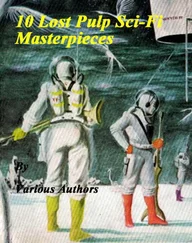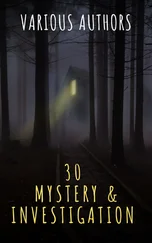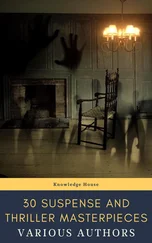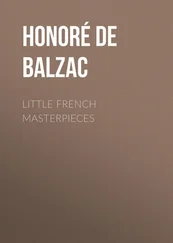W. Maugham - Selected Masterpieces
Здесь есть возможность читать онлайн «W. Maugham - Selected Masterpieces» весь текст электронной книги совершенно бесплатно (целиком полную версию без сокращений). В некоторых случаях можно слушать аудио, скачать через торрент в формате fb2 и присутствует краткое содержание. Жанр: Классическая проза, на английском языке. Описание произведения, (предисловие) а так же отзывы посетителей доступны на портале библиотеки ЛибКат.
- Название:Selected Masterpieces
- Автор:
- Жанр:
- Год:неизвестен
- ISBN:нет данных
- Рейтинг книги:5 / 5. Голосов: 1
-
Избранное:Добавить в избранное
- Отзывы:
-
Ваша оценка:
- 100
- 1
- 2
- 3
- 4
- 5
Selected Masterpieces: краткое содержание, описание и аннотация
Предлагаем к чтению аннотацию, описание, краткое содержание или предисловие (зависит от того, что написал сам автор книги «Selected Masterpieces»). Если вы не нашли необходимую информацию о книге — напишите в комментариях, мы постараемся отыскать её.
Selected Masterpieces — читать онлайн бесплатно полную книгу (весь текст) целиком
Ниже представлен текст книги, разбитый по страницам. Система сохранения места последней прочитанной страницы, позволяет с удобством читать онлайн бесплатно книгу «Selected Masterpieces», без необходимости каждый раз заново искать на чём Вы остановились. Поставьте закладку, и сможете в любой момент перейти на страницу, на которой закончили чтение.
Интервал:
Закладка:
She got up and went swifdy out of the kitchen. For a minute the three were left in silence. Hans looked ruefully at his bottle of champagne. He sighed and rose to his feet. When he went out Madame Perier accompanied him.
"Did you mean it when you said you would marry her?" she asked him, speaking in a low voice.
"Yes. Every word. I love her."
"And you wouldn't take her away? You'd stay here and work on the farm?"
"I promise you."
"Evidently my old man can't last for ever. At home you'd have to share with your brother. Here you'd share with nobody."
"There's that too."
"We never were in favour of Annette marrying that teacher, but our son was alive then and he said, if she wants to marry him, why shouldn't she? Annette was crazy about him. But now that our son's dead, poor boy, it's different. Even if she wanted to, how could she work the farm alone?»
"It would be a shame if it was sold. I know how one feels about one's own land."
They had reached the road. She took his hand and gave it a little squeeze.
"Come again soon."
Hans knew that she was on his side. It was a comfort to him to think that as he rode back to Soissons. It was a bother that Annette was in love with somebody else. Fortunately he was a prisoner; long before he was likely to be released the baby would be born. That might change her: you could never tell with a woman. Why, in his village there'd been a woman who was so much in love with her husband that it had been a joke, and then she had a baby and after that she couldn't bear the sight of him. Well, why shouldn't the contrary happen too? And now that he'd offered to marry her she must see that he was a decent sort of fellow. God, how pathetic she'd looked with her head flung back, and how well she'd spoken! What language! An actress on the stage couldn't have expressed herself better, and yet it had all sounded so natural. You had to admit that, these French people knew how to talk. Oh, she was clever. Even when she lashed him with that bitter tongue it was a joy to listen to her. He hadn't had a bad education himself, but he couldn't hold a candle to her. Culture, that's what she had.
"I'm a donkey," he said out loud as he rode along. She'd said he was big and strong and handsome. Would she have said that if it hadn't meant something to her? And she'd talked of the baby having fair hair and blue eyes like his own. If that didn't mean that his colouring had'made an impression on her he was a Dutchman. He chuckled. "Give me time, patience, and let nature go to work."
The weeks went by. The C.O. at Soissons was an elderly, easygoing fellow and in view of what the spring had in store for them he was content not to drive his men too hard. The German papers told them that England was being wrecked by the Luftwaffe and the people were in a panic. Submarines were sinking British ships by the score and the country was starving. Revolution was imminent. Before summer it would be all over and the Germans would be masters of the world. Hans wrote home and told his parents that he was going to marry a French girl and with her a fine farm. He proposed that his brother should borrow money to buy him out of his share of the family property so that he could increase the size of his own holding while land, owing to the war and the exchange, could still be bought for a song. He went over the farm with Perier. The old man listened quietly when Hans told him his ideas: the farm would have to be restocked and as a German he would have a pull; the motor tractor was old, he would get a fine new one from Germany, and a motor plough. To make a farm pay you had to take advantage of modern inventions. Madame Perier told him afterwards that her husband had said he wasn't a bad lad and seemed to know a lot. She was very friendly with him now and insisted that he should share their midday meal with them on Sundays. She translated his name into French and called him Jean. He was always ready to give a hand, and as time went on and Annette could do less and less it was useful to have a man about who didn't mind doing a job of work.
Annette remained fiercely hostile. She never spoke to him except to answer his direct questions and as soon as it was possible went to her own room. When it was so cold that she couldn't stay there she sat by the side of the kitchen stove, sewing or reading, and took no more notice of him than if he hadn't been there. She was in radiant health. There was colour in her cheeks and in Hans's eyes she was beautiful. Her approaching maternity had given her a strange dignity and he was filled with exultation when he gazed upon her. Then one day when he was on his way to the farm he saw Madame Perier in the road waving to him to stop. He put his brakes on hard.
"I've been waiting for an hour. I thought you'd never come. You must go back. Pierre is dead."
"Who's Pierre?"
"Pierre Gavin. The teacher Annette was going to marry." Hans's heart leapt. What luck! Now he'd have his chance. "Is she upset?"
"She's not crying. When I tried to say something she bit my head off. If she saw you today she's capable of sticking a knife into you."
"It's not my fault if he died. How did you hear?"
"A prisoner, a friend of his, escaped through Switzerland and he wrote to Annette. We got the letter this morning. There was a mutiny in the camp because they weren't given enough to eat, and the ringleaders were shot. Pierre was one of them."
Hans was silent. He could only think it served the man right. What did they think that a prison camp was - the Ritz?
"Give her time to get over the shock," said Madame Perier. "When she's calmer I'll talk to her. I'll write you a letter when you can come again."
"All right. You will help me, won't you?"
"You can be sure of that. My husband and I, we're agreed. We talked it over and we came to the conclusion that the only thing to do was to accept the situation. He's no fool, my husband, and he says the best chance for France now is to collaborate. And take it all in all I don't dislike you. I shouldn't wonder if you didn't make Annette a better husband than that teacher. And with the baby coming and all."
"I want it to be a boy," said Hans.
"It's going to be a boy. I know for certain. I've seen it in the coffee grounds and I've put out the cards. The answer is a boy every time."
"I almost forgot, here are some papers for you," said Hans, as he turned his cycle and prepared to mount.
He handed her three numbers of Paris-Soir. Old Perier read every evening. He read that the French must be realistic and accept the new order that Hitler was going to create in Europe. He read that the German submarines were sweeping the sea. He read that the General Staff had organized to the last detail the campaign that would bring England to her knees and that the Americans were too unprepared, too soft and too divided to come to her help. He read that France must take the heavensent opportunity and by loyal collaboration with the Reich regain her honoured position in the new Europe. And it wasn't Germans who wrote it all; it was Frenchmen. He nodded his head with approval when he read that the plutocrats and the Jews would be destroyed and the poor man in France would at last come into his own. They were quite right, the clever fellows who said that France was essentially an agricultural country and its backbone was its industrious farmers. Good sense, that was.
One evening, when they were finishing their supper, ten days after the news had come of Pierre Gavin's death, Madame Perier by arrangement with her husband, said to Annette:
"I wrote a letter to Hans a few days ago telling him to come here tomorrow."
"Thank you for the warning. I shall stay in my room."
"Oh, come, daughter, the time has passed for foolishness. You must be realistic. Pierre is dead. Hans loves you and wants to marry you. He's a fine-looking fellow. Any girl would be proud of him as a husband. How can we restock the farm without his help? He's going to buy a tractor and a plough with his own money. You must let bygones be bygones."
Читать дальшеИнтервал:
Закладка:
Похожие книги на «Selected Masterpieces»
Представляем Вашему вниманию похожие книги на «Selected Masterpieces» списком для выбора. Мы отобрали схожую по названию и смыслу литературу в надежде предоставить читателям больше вариантов отыскать новые, интересные, ещё непрочитанные произведения.
Обсуждение, отзывы о книге «Selected Masterpieces» и просто собственные мнения читателей. Оставьте ваши комментарии, напишите, что Вы думаете о произведении, его смысле или главных героях. Укажите что конкретно понравилось, а что нет, и почему Вы так считаете.












